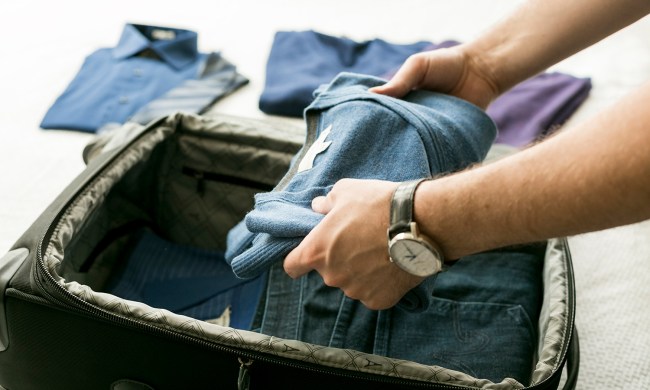The first time I flew first class, I had a fully lie-flat bed, gourmet meals, and endless champagne – it definitely felt different than squeezing into a cramped economy seat. After that flight, I never wanted to go back to flying economy for long-haul trips. But let’s be real – most of us fly economy because it’s affordable. So, is first class really worth the splurge? Let’s break down the key differences between first class vs. economy and see when (or if) you should upgrade.
Differences between first class and economy

First class and economy offer two very different flying experiences. Let’s compare them across the most important factors to see if the upgrade is worth it.
1. Cost
One of the biggest differences between first class and economy is the price. A first class ticket can cost anywhere from three to 10 times more than an economy ticket, sometimes even higher for long-haul international flights.
- Economy: Budget-friendly, with prices varying based on demand, route, and airline.
- First class: Can range from a few hundred dollars extra on domestic flights to thousands more for international routes.
Is it worth it? If you’re flying short-haul, the cost difference might not be justified. Travel expert Simon Wilson advises that paying full price for first class is rarely worth it. If you’re looking to upgrade from economy, using airline points is his suggestion.
2. Seating
Seating is one of the most noticeable differences between first class and economy.
- Economy: Standard seats are typically 17-18 inches wide, with 28-34 inches of legroom. On budget airlines, legroom can feel especially tight.
- First class: Seats are often 22-35 inches wide, with up to 80 inches of legroom on international flights. Many first class seats recline into fully flat beds, which is extra nice on long flights.
Is it worth it? If you struggle with legroom, first class provides a huge comfort upgrade.
3. Service and amenities
Airline service can really make or break your flying experience. In first class, it’s a world of difference.
- Economy: Standard service includes basic meals (on longer flights), a small seatback screen, and limited drink options.
- First class: If you’re flying first class, you’ll probably get perks like champagne upon boarding, gourmet meals, priority service, and personal attention from flight attendants. Some airlines even provide designer amenity kits and high-end pajamas.
Is it worth it? If personalized service, real silverware, and a lie-flat bed sound appealing, first class is worth considering.
4. Food and drink
The food in first class is restaurant-quality, while economy meals are usually mass-produced.
- Economy: Basic meals on long-haul flights, often pre-packaged. Some airlines charge extra for meals on shorter flights.
- First class: Usually includes multi-course meals with fresh ingredients, premium wines, and unlimited beverages. Some airlines offer caviar service and à la carte dining.
Is it worth it? If you enjoy good food and drinks, first class offers a huge upgrade over economy.
5. Boarding and airport perks
The first class vs. economy experience starts before you even board the plane.
- Economy: Long security lines, crowded boarding gates, and waiting a while for baggage after landing.
- First class: Priority check-in, expedited security lanes, access to luxury airport lounges, and first boarding.
Is it worth it? If you hate waiting in lines and love airport lounges, first class has major perks.
6. Luggage allowance
First class passengers usually get extra baggage allowances.
- Economy: Typically one carry-on and one checked bag (sometimes checked bags cost extra).
- First class: Usually two or more checked bags included, plus priority baggage handling.
Is it worth it? If you travel with a lot of luggage, the extra baggage allowance in first class can save you money.
7. Entertainment and connectivity
The difference in onboard entertainment depends on the airline.
- Economy: Seatback screens with standard movie selections.
- First class: You’ll likely get larger entertainment screens, headphones, and sometimes Wi-Fi included for free.
Is it worth it? If you enjoy premium entertainment, first class is a better option.
Final verdict – should you upgrade to first class?

In general, here are some guidelines when it comes to picking between first class or economy:
- Choose economy if you’re on a budget, traveling short-haul, or don’t mind a basic flying experience.
- Choose first class if you want maximum comfort, are flying long-haul, or can justify the extra cost with points or upgrades.
My opinion? If you have the chance to upgrade with miles or points, going with first class is absolutely worth it. But if you’re just looking for a way to save money, economy will get you to your destination just fine.
FAQs: First class vs. economy

How can I upgrade to first class for free?
Frequent flyer miles, airline elite status, and credit card rewards can sometimes get you a free or discounted upgrade. Occasionally, airlines offer upgrades at check-in for a lower price than booking first class outright.
Is business class better than first class?
On most airlines, business class is almost as luxurious as first class and includes lie-flat seats, premium meals, and lounge access. However, first class is often even more spacious, with extra perks like private suites and exclusive airport services.
Do all airlines offer first class?
No. Some airlines, especially budget carriers and many European airlines, don’t offer first class at all. Instead, they may have economy, premium economy, and business class as their only seating options.
What’s the difference between first class and premium economy?
Premium economy is a step between economy and business class, offering extra legroom, better meals, and priority boarding. However, it doesn’t compare to first class, which typically includes lie-flat beds, luxury dining, and high-end service.




